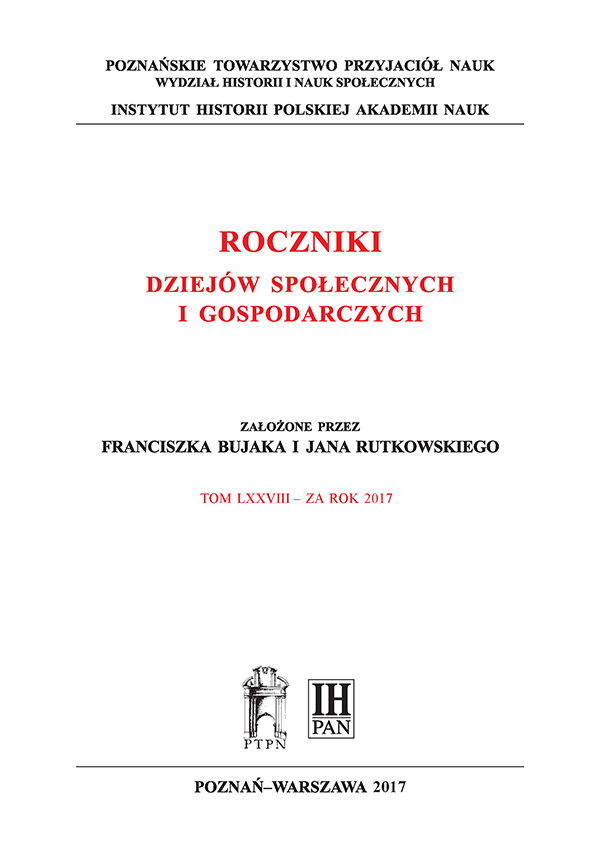Problemy finansowe ewangelickiej Jednoty Litewskiej w pierwszej połowie XVII w. w świetle akt synodów prowincjonalnych
Financial problems of the Lithuanian Evangelic Unity in the first half of the seventeenth century in the light of records of provincial synods
Author(s): Marzena Liedke, Piotr GuzowskiSubject(s): Economic history, Social history, 17th Century
Published by: Instytut Historii im. Tadeusza Manteuffla Polskiej Akademii Nauk
Keywords: Lithuanian Unity; financial crisis; Vilnius Protestant Church;loans and credits;
Summary/Abstract: Opinions about the financial condition of the Lithuanian Evangelical Reformed Church in the first half of the seventeenth century that could be found in the literature on the subject indicate that the financial situation of the Lithuanian Unity was quite satisfactory. But an analysis of the records of the Unity’s provincial synods reveals that the Church had to cope with many economic troubles. Its main source of income were private foundations of the churches, monetary and material bequests (landed estates, real properties in town and cities, objects of silver and gold, liturgical vessels, etc.), and various collections of funds among the faithful. The management of legal and financial matters was vested in the office of general actor (legal representative) of the Lithuania’s Unity. Financial matters of individual parishes were managed by stewards, and the economic situation of parishes and churches was in the charge of special commissions, appointed when needed. The economic situation of the Lithuanian Unity was influenced by – apart from the intensified Counter-Reformation action of the Roman Catholic Church, conversions or deaths of the most wealthy faithful, noticed in the literature – unreliability of the Unity’s main financial officers, actors and stewards, or troubles with the management of loans (even – or especially – made to the most affluent members of the Unity – i.e. the Radziwills), and problems with getting back and receiving donations made to the Unity. Thus, it is difficult to maintain unreasonably optimistic opinions about the economic situation of the Evangelical Reformed Church in the Grand Duchy of Lithuania, for – despite the protection of the Radziwills – the material assets of the Unity declined. The Church had to pay for trials and, after 1640, for the transfer of its central church building outside the city walls of Vilnius. Its difficult financial situation was reflected in underfinancing of its priests, who were paid smaller salaries, in smaller social assistance or in abortion of such important for the Church plans as the opening of a seminary at Zabłudów.
Journal: Roczniki Dziejów Społecznych i Gospodarczych
- Issue Year: 2017
- Issue No: 78
- Page Range: 95-130
- Page Count: 36
- Language: Polish

